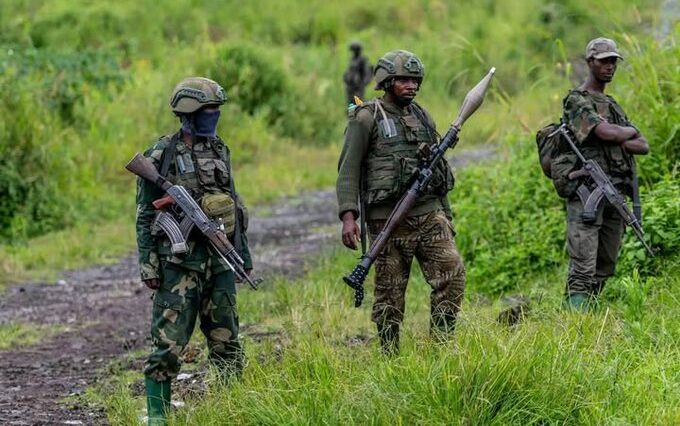The protracted conflict in the eastern Democratic Republic of Congo (DRC) has taken a significant turn, with United Nations officials reporting that Congolese rebel groups, notably the March 23 Movement (M23) and their allies, have expressed a willingness to seek a peaceful resolution to the ongoing crisis. This development comes amid months of intense fighting, mass displacement, and mounting international concern over the humanitarian situation in the mineral-rich region.
UN-Led Talks in Goma: A Glimmer of Hope
On Friday, Bintou Keita, the special representative of the UN Secretary-General in the DRC and head of the UN Stabilization Mission (MONUSCO), held high-level discussions with leaders of the M23 and the Congo River Alliance (AFC), a politico-military group allied with M23, in Goma, the capital of North Kivu Province. Goma has been under rebel control since late January, following a major offensive that saw M23 seize significant territory and further destabilize the region.
During a press briefing following the meeting, Keita stated, “The leaders of AFC/M23 conveyed their readiness to engage in dialogue and pursue a peaceful solution.” While details of the discussions remain limited, the UN envoy emphasized that these talks were part of ongoing joint efforts to benefit the civilian population and de-escalate tensions.
Images from the summit showed Keita and her team arriving in the conflict zone, underscoring the gravity and urgency of the situation. The meeting, although not the first of its kind, was the most prominent UN-led negotiation since the rebels’ capture of Goma, signaling a potential shift in the rebels’ approach to the crisis.
Background: A Crisis Deepens
The eastern DRC has long been plagued by violence, with various armed groups vying for control of lucrative mineral resources and strategic territory. The current crisis intensified in early 2025, when M23, reportedly backed by Rwanda, launched a major offensive, capturing key cities and displacing hundreds of thousands of civilians. The humanitarian toll has been severe, with thousands killed and countless more forced to flee their homes.
Efforts by MONUSCO to halt the rebel advance have met with limited success. The UN mission has faced direct threats, with some personnel targeted by M23 fighters. Despite these challenges, MONUSCO has reiterated its commitment to supporting all initiatives aimed at promoting peace and protecting civilians.
Peace Talks: Progress and Obstacles
The willingness of the rebels to consider dialogue marks a notable development, but the path to peace remains fraught with challenges. Previous attempts at negotiations have repeatedly stalled due to disagreements over key issues such as amnesty, disarmament, and integration of rebel fighters into the national army. In March 2025, the M23 withdrew from Angola-mediated peace talks, citing international sanctions and what they described as efforts to undermine peace initiatives.
Nevertheless, the UN maintains that progress is possible. Keita highlighted recent collaborative efforts, including the relocation of over 1,300 DRC military and police personnel from Goma to Kinshasa, facilitated by the International Committee of the Red Cross, the DRC government, AFC/M23, and MONUSCO—a rare example of cooperation among parties to the conflict.
International and Regional Implications
The conflict in eastern Congo has significant regional implications, with neighboring Rwanda accused of supporting the M23 rebels, a claim it denies. The instability threatens to spill over borders and disrupt broader efforts for peace and development in the Great Lakes region.
Angola, acting as a mediator, has attempted to broker a ceasefire and facilitate direct dialogue between the DRC government and M23. However, mutual distrust and the DRC’s reluctance to negotiate directly with the rebels have hampered progress.
Conclusion: Cautious Optimism Amid Uncertainty
While the rebels’ stated openness to dialogue is a positive sign, the situation remains highly volatile. The UN continues to call for constructive engagement from all parties, urging them to seize the opportunity for peace and prioritize the well-being of the civilian population. As negotiations continue, the international community watches closely, hoping that this moment of potential compromise can be transformed into lasting peace for the people of eastern Congo.

